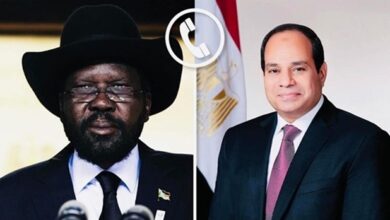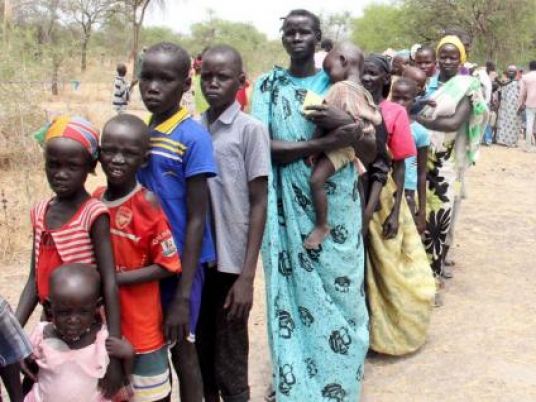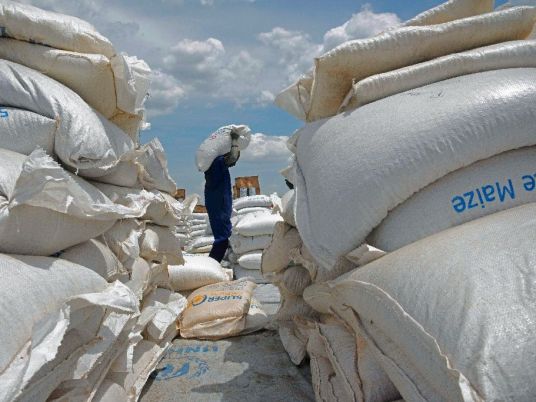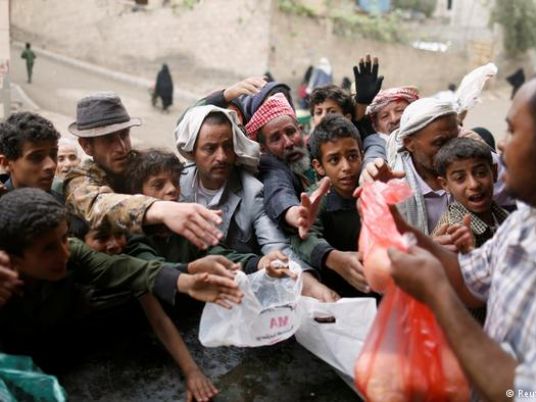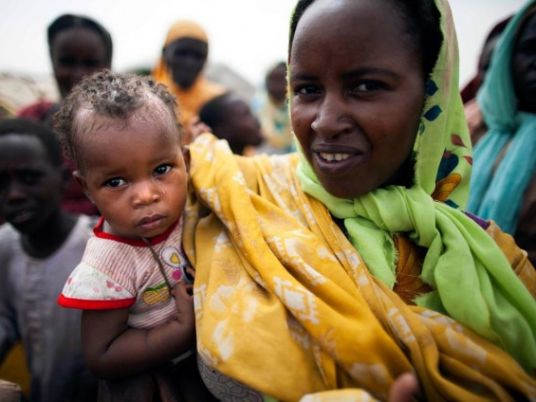
Deputy Executive Director of the UN Children's Fund (UNICEF) Yoka Brandt has warned that the situation of women and children in South Sudan remained precarious.
"We are very worried that children are bearing the brunt of a conflict that they basically have nothing to do with," Brandt told The Anadolu Agency in an exclusive interview.
"A large number of children are either displaced, refugees, or impacted by the crisis in various ways," she said.
"That," she added, "has had a strong psychosocial effect on the children."
South Sudan – which seceded from Sudan in 2011 – has been shaken by violence since late 2013, when President Salva Kiir accused his sacked vice president, Riek Machar, of leading a failed coup attempt against his regime.
Tens of thousands have reportedly been killed in subsequent violence, with some 2 million uprooted from their homes and 2.5 million at risk of starvation, according to recent UN estimates.
On-again, off-again peace talks in Ethiopian capital Addis Ababa have failed to reach a breakthrough.
Children have been targeted in several ways, with UNICEF estimating that 13,000, mostly boys, have been recruited by various armed groups.
"We are also very worried about their rights, which are being violated through their being recruited into armed groups," Brandt told AA.
UNICEF and its partners recently secured the release of nearly 3,000 child soldiers recruited by the South Sudan Democratic Army's Cobra Faction, led by rebel leader David Yau Yau.
In May 2014, the government and Yau Yau signed a peace agreement according to which Yau Yau was made administrator of the newly-formed Greater Pibor administration.
Challenges
Brandt, who arrived in South Sudan on Friday for a four-day assessment visit, is also concerned about a number of other problem facing South Sudanese children, such as "their nutritional status and access to services like health and education."
She warned that the nutritional situation among the country's children was alarming.
"We are looking at a new data that are going to come out soon but we do estimate that of 220,000 children will be suffering from severe acute malnutrition," the U.N. official told AA.
"Together with the World Food Program and other partners, we have scaled up our response to malnutrition and again will work with our team to address this issue," she asserted.
"But obviously," Brandt added, "we need to work on the causes of this malnutrition in order to prevent it from being a different situation again next year."
She went on to stress the importance of investing in the future of South Sudan's children.
"I think the argument is so strong that if we don't do that – if we don't invest in these children and in the future of this very young country – then, indeed, we run the risk of losing a generation," she warned.
"We need that to actually build up the country to be authentic and economically prosperous South Sudan," she added. "Overall, this is one of the most serious crises children are facing."
Inaccessible
Brandt also decried the conditions faced by women in the war-ravaged country, voicing particular concern about cases of sexual violence.
"But again, you know also in terms of services for pregnant women or women mothers, they are always among the most vulnerable," she told AA.
The UNICEF deputy chief visited Fangak County in Jonglei State to see first-hand the rapid-response mechanism improvised by UNICEF and its partners to provide humanitarian assistance in the area.
"That is actually a very effective mechanism to reach people that are very difficult to access, people there in faraway areas, areas inaccessible due to the ongoing crisis," she said.
"Together with our food agency, the WFP, and various partners, we are able to reach these people directly and at the same time work with partners on the ground to make sure this assistance is sustainable," added Brandt.
Her flight to Pibor's Labrab area in the remote northern part of the country was cancelled on Sunday due to bad weather, giving her first-hand experience of the difficulties associated with accessing South Sudan's remote communities.
"This is a very difficult operating environment," she told an AA correspondent who accompanied her.
"We were supposed to visit another site, but we couldn't because it's very difficult to access locations, since everything has to be flown in by air," Brandt said.
The UN official noted that South Sudan's few roads, especially during the rainy season, were "becoming impassable."
"Obviously," she said, "there is a security concern."
Brandt also lamented the lack of funds for humanitarian operations in the war-ravaged country.
"In a crisis like this, we always want to do more because the needs are enormous," she told AA.
"It's an issue of funding; we are urgently appealing for more funds to keep these essential services for children and women going," said Brandt.
She said they were still 74 percent below the $165 million needed for relief operations this year.
"We have some sectors here [that are] especially underfunded, like the protection and rehabilitation sector [for demobilized child soldiers]," Brandt explained.
Despite the funding shortfall, Brandt noted that, through the rapid-response mechanism, they had managed to reach some 700,000 people in need of humanitarian assistance.
"Outside of that, we have reached children and women with effectual services, such as vaccination campaigns, psychosocial services, education, and water and sanitation services," she added.
"We will continue our work as best we can and as hard as we can," said Brandt. "But obviously, when you face funding shortfalls for a long time, you have to scale down services."

